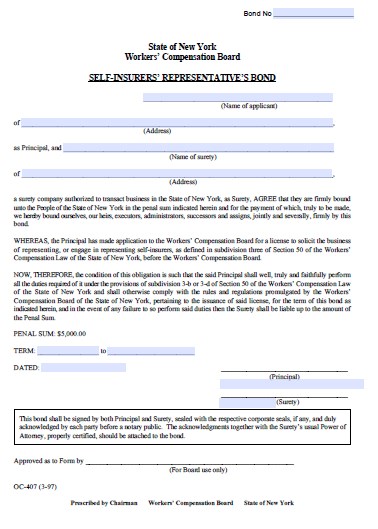Increased Scrutiny For Asylum Seekers: UK Targets Migrants From Specific Nations

Table of Contents
Targeted Nationalities and the Rationale Behind the Policy
The UK government's intensified scrutiny primarily affects asylum seekers from specific countries, notably Albania and Afghanistan, although the list may vary over time. The rationale behind this targeting often centers on concerns about unfounded asylum claims and the alleged involvement of organized crime networks in facilitating irregular migration. The government argues that these measures are necessary to deter economic migration and ensure that the asylum system is not overwhelmed by those who do not genuinely need protection.
The specific measures implemented against migrants from these targeted nations include:
- Lengthened processing times: Asylum applications from these nationalities often face significantly longer processing times than those from other countries.
- Higher rejection rates: A disproportionately high number of asylum claims from these nationalities are rejected, leading to deportation proceedings.
- Enhanced border security: Increased security measures at UK borders aim to prevent entry from these specific regions.
- Increased collaboration with origin countries: The UK government is strengthening partnerships with specific countries to expedite the return of rejected asylum seekers.
These policies raise concerns about the potential for systemic bias and the risk of overlooking genuine asylum claims from individuals fleeing persecution or violence.
The Impact on Asylum Seekers and the Humanitarian Concerns
The stricter asylum policies have a significant human cost. The increased processing times leave vulnerable individuals in limbo, often without adequate housing, financial support, or access to healthcare. Many asylum seekers find themselves trapped in a protracted and uncertain legal process, with profound impacts on their mental and physical wellbeing.
- Prolonged uncertainty: Delays in processing applications lead to prolonged periods of anxiety and insecurity.
- Higher rejection rates & deportation: The increased rejection rates result in deportation, potentially exposing individuals to further persecution or harm in their home countries.
- Increased vulnerability to exploitation: The vulnerable situation of asylum seekers makes them susceptible to exploitation and trafficking.
The ethical considerations of targeting specific nationalities based on generalized assumptions are considerable. Such an approach risks overlooking individual circumstances and perpetuating harmful stereotypes. Real-life examples abound of individuals from these targeted nations fleeing genuine persecution, only to be subjected to lengthy delays and eventual rejection based on generalized national profiles. The lack of individualized assessment of claims raises serious human rights concerns.
Legal Challenges and Public Opinion on the Policy
The government's approach has faced significant legal challenges. Several court cases and judicial reviews are ongoing, questioning the legality and fairness of the policies. Challenges often center on claims of discrimination, procedural unfairness, and violations of international human rights law, specifically the right to seek asylum.
Public opinion on the issue is sharply divided. Polls reveal a complex picture, with fluctuating levels of support depending on the framing of the question and the specific policies in question. Media coverage reflects this polarization, with strong arguments both for and against the government's approach. The debate is often framed around issues of national security, economic burden, and the moral obligation to protect refugees.
The Role of International Cooperation in Addressing Migration
The UK actively collaborates with other nations to manage asylum claims and returns. These collaborations involve information sharing, joint operations, and agreements on the return of rejected asylum seekers. While such cooperation can help manage migration flows, it also presents ethical dilemmas. The effectiveness of these collaborations varies considerably, with potential challenges including differing legal frameworks, resource disparities, and concerns about the safety and treatment of returned individuals. The ethical implications of such cooperation, particularly regarding the potential for refoulement (the return of individuals to a place where they face danger), require careful consideration.
Conclusion
The increased scrutiny faced by asylum seekers from specific nations in the UK is a complex issue with significant humanitarian and legal ramifications. The government’s policies, while aiming to address concerns about unfounded claims and organized crime, raise serious questions about fairness, proportionality, and the potential for human rights violations. The prolonged processing times, higher rejection rates, and increased vulnerability of asylum seekers highlight the urgent need for a more balanced and humane approach. It is crucial to ensure that asylum claims are assessed individually and fairly, respecting international law and the fundamental human rights of all individuals seeking refuge. We must advocate for fairer and more humane UK immigration policies that uphold the principles of international protection. To stay informed and contribute to this vital debate, please visit [link to relevant organization 1] and [link to relevant organization 2] and consider signing petitions such as [link to relevant petition]. Let's work together to ensure a just and compassionate response to the needs of asylum seekers in the UK.

Featured Posts
-
 New Rules Sought Indian Insurers Target Bond Forward Market
May 09, 2025
New Rules Sought Indian Insurers Target Bond Forward Market
May 09, 2025 -
 A Bad Snl Impression Leaves Harry Styles Devastated
May 09, 2025
A Bad Snl Impression Leaves Harry Styles Devastated
May 09, 2025 -
 Snegopad V Permi Aeroport Zakryt Do 4 00 Utra
May 09, 2025
Snegopad V Permi Aeroport Zakryt Do 4 00 Utra
May 09, 2025 -
 Dakota Johnson Ir Kraujingos Plintos Nuotraukos Paaiskinimas
May 09, 2025
Dakota Johnson Ir Kraujingos Plintos Nuotraukos Paaiskinimas
May 09, 2025 -
 Canadas Housing Crisis The Impact Of Steep Down Payments
May 09, 2025
Canadas Housing Crisis The Impact Of Steep Down Payments
May 09, 2025
